How Water, Sanitation and Hygiene Initiatives have transformed Rural Communities in Ha-Leopola
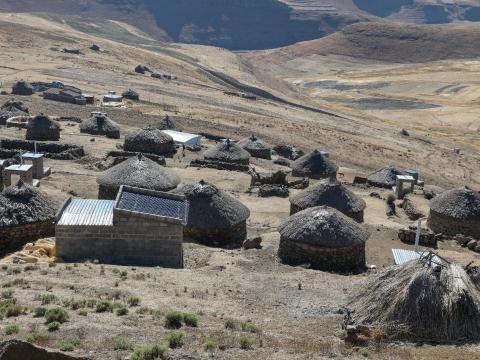
By: Lerato Brown, Communications & Marketing Manager, Lesotho
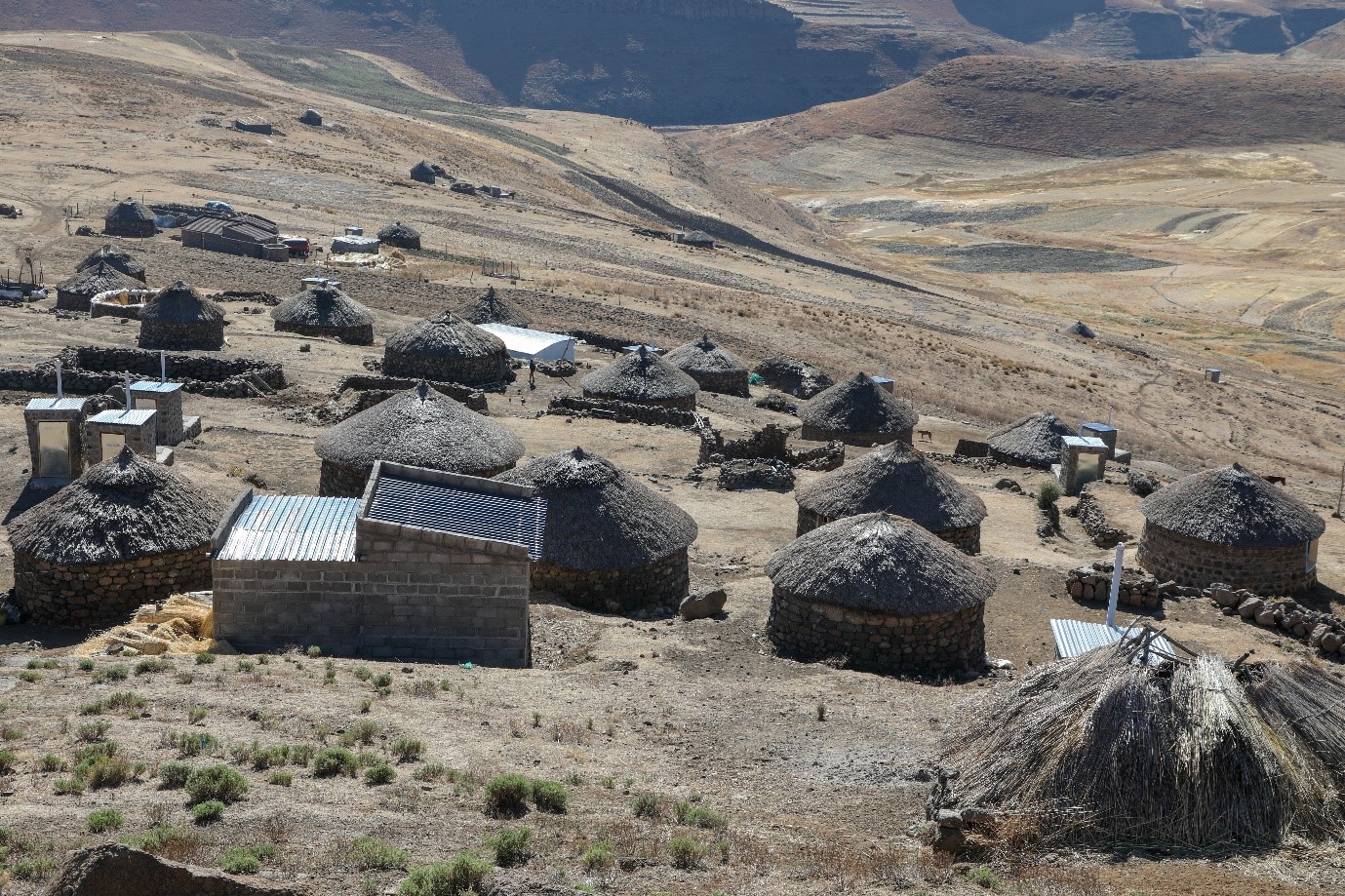 In the isolated village of Ha-Leapola, settled in the mountains of Mokhotlong, Lesotho, life was marked by the hardship of walking long distances to use the toilet for Matseliso Sekekane and her family. At 74 years old, Matseliso and her Neighbour's faced the harsh reality of not having a single toilet in the entire village. Open defecation was the norm, and for her, this meant walking long distances to find a secluded spot. "At my age, walking to the donga was unbearable, especially when I had a running stomach," she shared.
In the isolated village of Ha-Leapola, settled in the mountains of Mokhotlong, Lesotho, life was marked by the hardship of walking long distances to use the toilet for Matseliso Sekekane and her family. At 74 years old, Matseliso and her Neighbour's faced the harsh reality of not having a single toilet in the entire village. Open defecation was the norm, and for her, this meant walking long distances to find a secluded spot. "At my age, walking to the donga was unbearable, especially when I had a running stomach," she shared.
Her granddaughter, 15-year-old Rethabile, also endured the indignity and dangers associated with the lack of proper sanitation. “As a young girl, it was embarrassing and unsafe to go to the donga (a secluded spot in the bushes), especially during my period. The herd boys would laugh and mock us, which made me feel small and unsafe,” Rethabile recalled. The constant exposure and risk of exploitation were compounded by the health hazards, as rain would wash waste into the village's water source, leading to frequent spells of diarrhea.
“As a young girl, it was embarrassing and unsafe to go to the donga (a secluded spot in the bushes), especially during my period. The herd boys would laugh and mock us, which made me feel small and unsafe,”
For Matseliso, the necessity of a toilet became evident as she grew older and less mobile. “As long as we had a home to live in, that was our priority. But as I grew older, I realized the need for a toilet within the home,” she explained. The health impacts on the village were clear to everyone, including young Rethabile, who noted, “When it rained, the waste would sweep into the spring where we got our water, causing stomach illnesses.”
The Turning Point: World Vision's Intervention
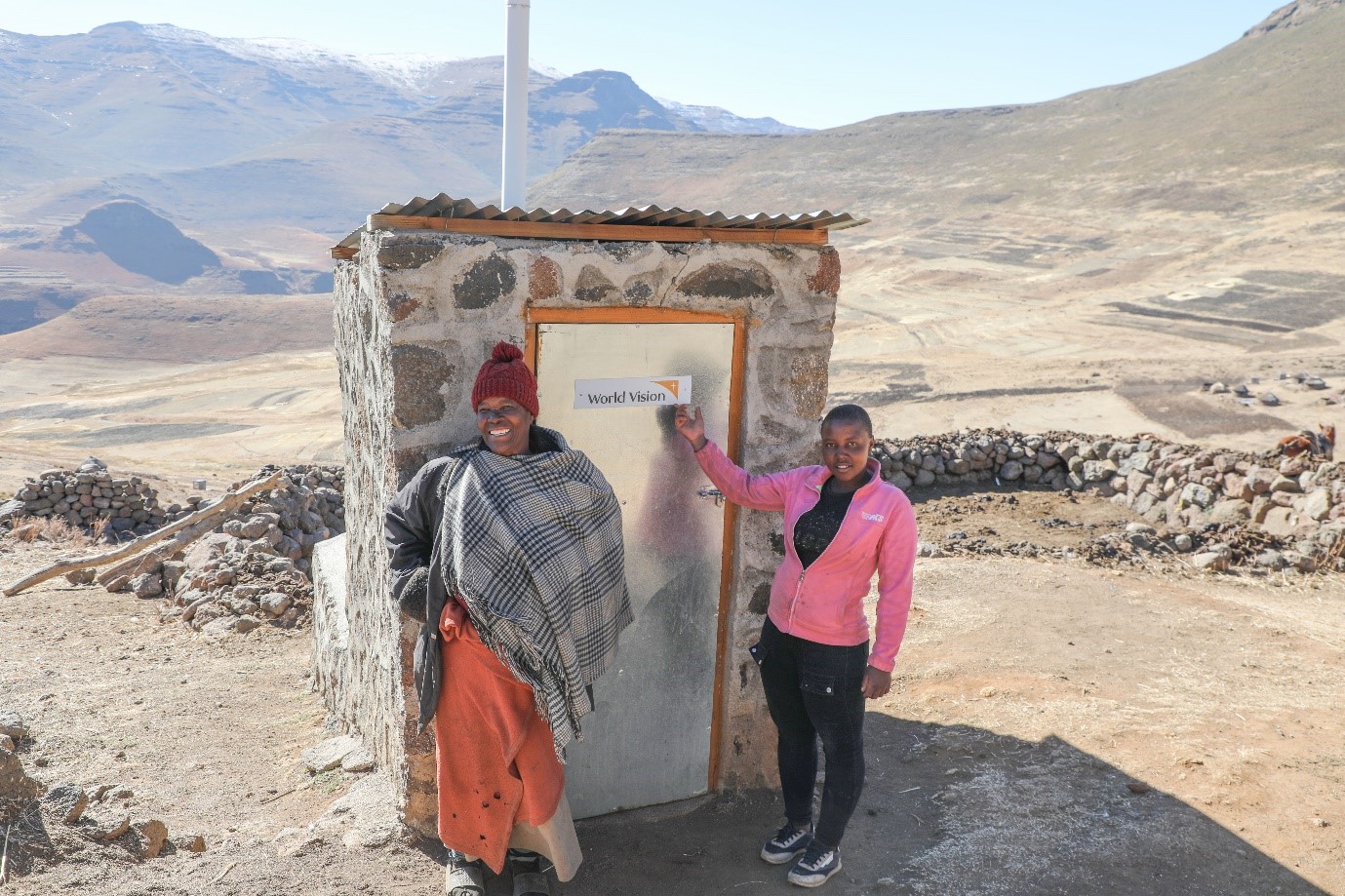
World Vision noticed the need for sanitation facilities, improved hygiene and water services in this village through their regular community assessments; as a result, through the Water, Sanitation and Hygiene programme they constructed sanitation facilities in the village, and Matseliso’s family was among the 53 families in Ha- Leapola who received support to construct household latrines (simple ventilated outside pit toilets). This simple yet profound change brought immediate relief and dignity to these families.
"Having a household latrine has been a blessing. I feel more at ease and safe, especially during my periods. I appreciate the privacy and the sanitary bins for proper disposal of sanitary towels,” Rethabile expressed with gratitude.
Matseliso echoed her granddaughter’s sentiments, emphasizing the broad impact of the new toilets. “Our lives are different now. We don’t walk long distances, we feel safe, and can use the toilet day and night. For the disabled members of our village, the latrines have been a lifesaver.” In addition to the toilets, World Vision constructed community taps, providing access to clean water and significantly reducing waterborne diseases. “After the toilets and taps were installed, we no longer experienced diarrhea. Drawing water closer to home was wonderful,” Rethabile smiled.
“Our lives are different now. We don’t walk long distances, we feel safe, and can use the toilet day and night.
Broader Impact of the WASH Programme
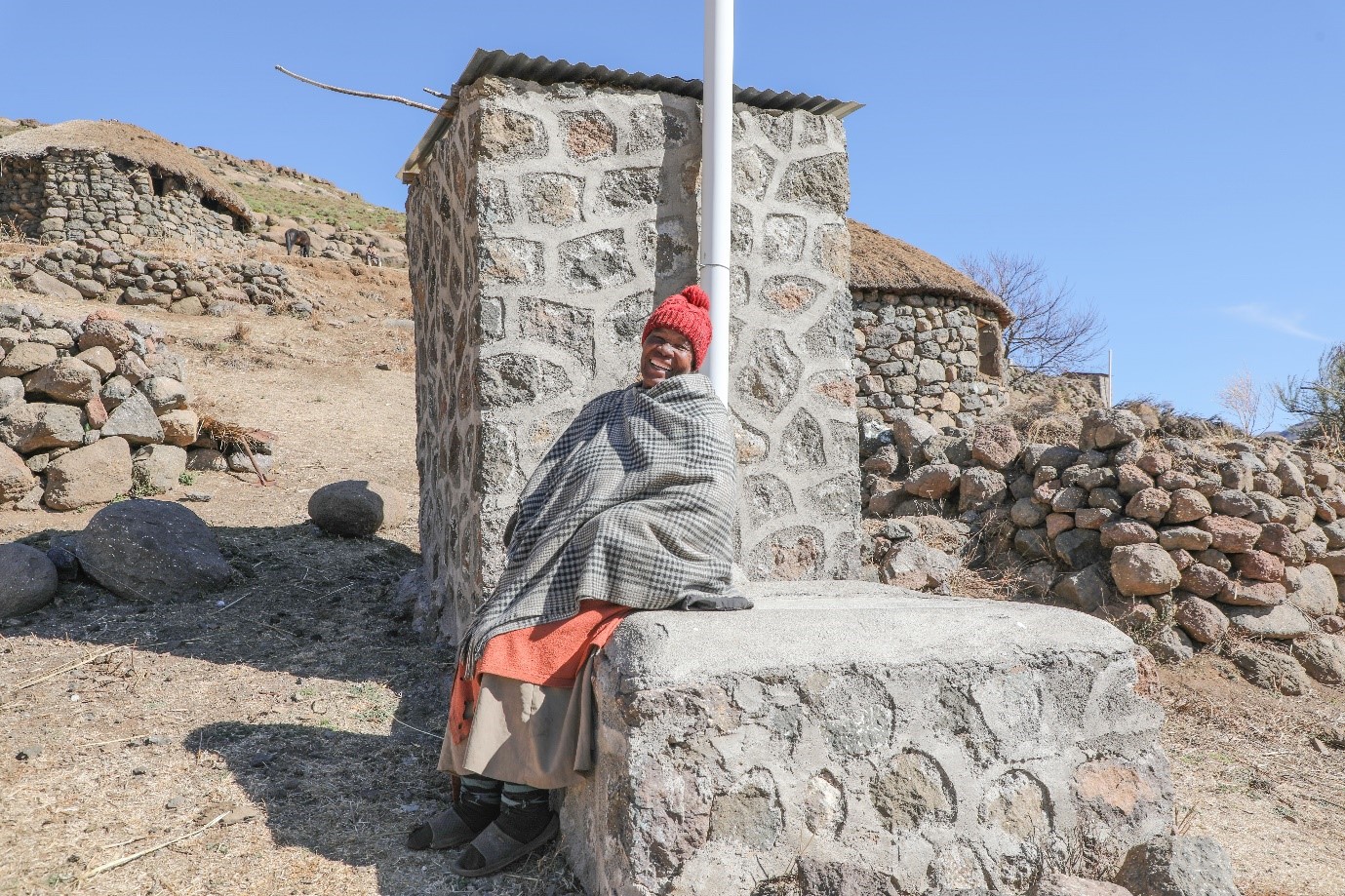
The impact of the WASH programme extends far beyond Matseliso's family, bringing transformative change to numerous communities in Lesotho. In 2024 alone, World Vision's WASH interventions have reached eight (8) out of ten (10) area programmes, making significant strides towards achieving SDG 6: ‘Ensuring availability and sustainable management of water and sanitation for all’ as well as ensuring children, families and communities are protected from disease and illness.
Through a comprehensive approach encompassing water supply, sanitation and hygiene, governance and finance, and water security and resilience, World Vision has improved the lives of thousands.
By constructing 1,429 water points, the programme provided 85,950 people with reliable access to basic drinking water. This effort has directly benefited 37,391 women (including Matseliso and her granddaughter), ensuring they no longer have to walk long distances to fetch water, which allows them more time family care. For the 33,788 men, the availability of clean water has meant better health and productivity, while 7,071 girls and 7,700 boys now enjoy safer, healthier childhoods free from waterborne diseases and time for education.
Additionally, 2,687 household sanitation facilities were built, transforming daily life for 10,748 people. For 4,022 women, these facilities offer privacy and dignity, especially during menstruation. The 3,592 men, 1,330 girls, and 1,804 boys now live-in healthier environments, significantly reducing the incidence of diseases caused by poor sanitation.
These interventions have not only improved health and hygiene but have also fostered a sense of dignity and security across communities, showcasing World Vision's commitment to lasting, positive change.
Facing New Challenges: Climate Change
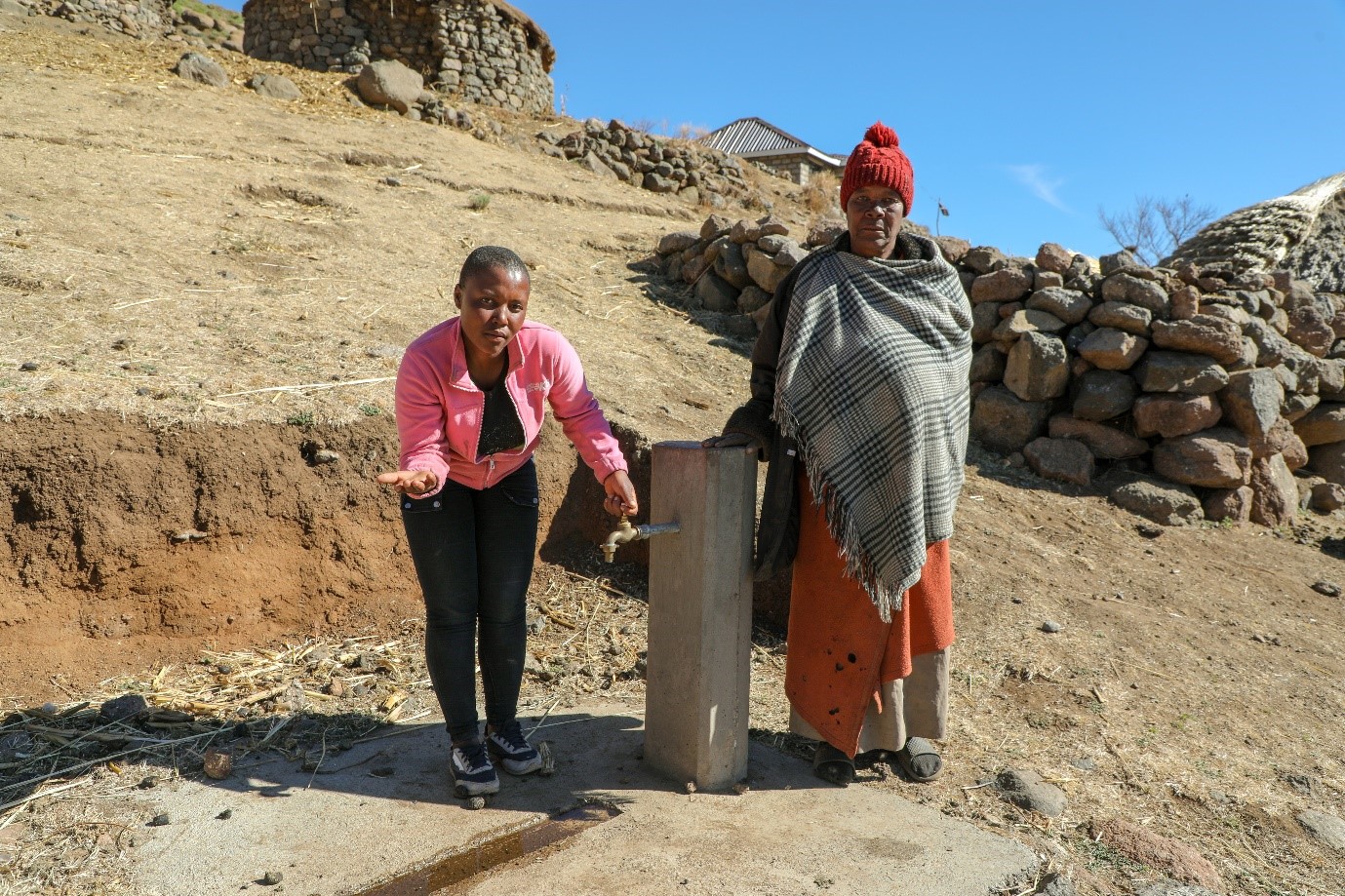
Despite the significant progress made, climate change has introduced new challenges that threaten these vital interventions. Increasing droughts have caused rivers and springs to dry up, leading the community to struggle for water once again.
“Because of the drought, the water no longer goes through the taps,” Matseliso pointed out, highlighting the pressing issue.
However, even in the face of these hardships, the community remains resilient and hopeful. “Even in these circumstances, I believe that just as God came through for us through World Vision, He will make a way for us in this dry season,” Matseliso expressed. This situation underscores the urgent need for continued support and sustainable solutions to ensure these communities can adapt and thrive despite the challenges posed by climate change.
A Call to Action
Let's unite in action to support these critical initiatives, addressing both the immediate needs of water, sanitation, and hygiene (WASH) and the long-term challenges posed by climate change. By coming together, we can build resilient communities capable of overcoming both current and future obstacles. Families, like Matseliso's, deserve to thrive, experiencing improved health, dignity, and quality of life. Together, let's continue making a difference, one community at a time because clean water, a clean environment, and good hygiene practices are essential for children and families to thrive.